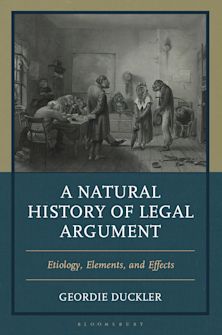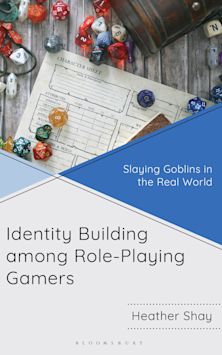- Home
- ACADEMIC
- Sociology
- Sociology - Other
- Studies in Urbanormativity
Studies in Urbanormativity
Rural Community in Urban Society
Gregory M. Fulkerson (Anthology Editor) , Alexander R. Thomas (Anthology Editor) , Elizabeth Seale (Contributor) , Alexander R. Thomas (Contributor) , Karen E. Hayden (Contributor) , Stephanie Bennett (Contributor) , Aimee Vieira (Contributor) , Barbara Ching (Contributor) , Gerald Creed (Contributor) , Brian Lowe (Contributor) , Chris Stapel (Contributor) , Polly Smith (Contributor) , Gretchen Thompson (Contributor) , Karl A. Jicha (Contributor) , R. V. Rikard (Contributor) , Robert Moxley (Contributor) , Thomas Gray (Contributor) , Curtis Stofferahn (Contributor) , Laura McKinney (Contributor)
Studies in Urbanormativity
Rural Community in Urban Society
Gregory M. Fulkerson (Anthology Editor) , Alexander R. Thomas (Anthology Editor) , Elizabeth Seale (Contributor) , Alexander R. Thomas (Contributor) , Karen E. Hayden (Contributor) , Stephanie Bennett (Contributor) , Aimee Vieira (Contributor) , Barbara Ching (Contributor) , Gerald Creed (Contributor) , Brian Lowe (Contributor) , Chris Stapel (Contributor) , Polly Smith (Contributor) , Gretchen Thompson (Contributor) , Karl A. Jicha (Contributor) , R. V. Rikard (Contributor) , Robert Moxley (Contributor) , Thomas Gray (Contributor) , Curtis Stofferahn (Contributor) , Laura McKinney (Contributor)
You must sign in to add this item to your wishlist. Please sign in or create an account
Description
The world has been witnessing a long unfolding process of urbanization that not only has altered the structural basis of society in terms of political economy, but has also symbolically relegated rural people and life to a secondary or deviant status through an ideology of urbanormativity. Both structural and cultural changes rooted in urbanization are connected in complex ways to spatial arrangements that can be described in terms of inequality and uneven development. Through a focus on localities, Studies in Urbanormativity: Rural Community in Urban Society examines the implications of urbanization and its corresponding ideology. Urbanormativity justifies rural domination by holding urban life as the standard against which rural forms are compared and deemed to be irregular, inferior, or deviant. Urban production, as conceptualized in this book, is inherently exploitative of rural resources—natural, social, cultural, and symbolic. As this exploitation advances, a wake of entropic conditions is left behind in the forms of degraded landscapes, broken social institutions, and denigrated communities, cultures and identities.
Edited by Gregory M. Fulkerson and Alexander R. Thomas, Studies in Urbanormativity engages a topic on which scholars have been surprisingly silent. Designed for advancing theory and practice, the chapters provide new theoretical tools for understanding the complex relationship between the urban and rural. While primarily intended for scholars and practitioners interested in rural life, rural policy, and community development, the insights of this book will also be of interest to scholars studying various forms of cultural and social domination, as well as identity politics.
Table of Contents
Chapter 1: Urbanization, Urbanormativity, and Place-Structuration
Chapter 2: Critical Concepts for Studying Communities and their Built Environments
Chapter 3: Historic Hartwick: Reading Civic Character in a Living Landscape
Chapter 4: Stigma, Reputation, and Place Structuration
Chapter 5: ‘Taking the Cure:’ The Rural as a Place of health and Wellbeing in New York State during the Late 1800’s and early 1900’s
Chapter 6: Minority Groups and the Informal Economy: English Speakers in Quebec’s Eastern Townships
Chapter 7: Eaten Up: Urban Foraging and Rural Identity
Chapter 8: Fracture Lines
Chapter 9: “Fagging” the Countryside? (De)”Queering” Rural Queer Studies
Chapter 10: Return to Ridgefield Corners: Cultural Continuity and Change in a Rural Village
Chapter 11: Inbred Horror: Degeneracy, Revulsion, and Fear of the Rural Community
Chapter 12: Matrixed Inequality, Rurality, and Access to Substance Abuse Treatment: A Community Structure Analysis of North Carolina Communities
Chapter 13: Eliminating Organization Tensions, Dis-embedding Farmers: A Ten Year Retrospective on the (Organizational) Political-Economic Losses of Dakota Growers Pasta Cooperative
Chapter 14: A Study of Sustainability: Entropy and the Urban/Rural Transition
Chapter 15: Conclusion
Chapter 16: About the Contributors
Product details
| Published | 19 Dec 2013 |
|---|---|
| Format | Ebook (Epub & Mobi) |
| Edition | 1st |
| Extent | 312 |
| ISBN | 9780739178775 |
| Imprint | Lexington Books |
| Illustrations | 1 b/w illustration |
| Publisher | Bloomsbury Publishing |
About the contributors
Reviews
-
The chapters [in this book] are interesting, insightful, and thought provoking.
Journal of Sociology
-
Studies in Urbanormativity is a wide-ranging collection that moves beyond the boundaries of traditional rural sociology in significant, productive, and critical ways. It is an important book that comes at a crucial time. As the world becomes more urban than rural and as the economic and cultural import of rural people and places is seen as waning, these authors reveal the phenomenon of urbanormativity as a key step to challenging its inevitability.
Lisa R. Pruitt, University of California, Davis
-
Studies in Urbanormativity is an essential and exciting contribution to the field of rural studies. Fulkerson and Thomas have masterfully assembled a volume that not only marshals provocative argumentation regarding the importance and relevance of rurality in an increasingly urban world, but more importantly the ways in which 'the rural' has been naturalized as a spatial, as well as social, political and cultural periphery. The chapters within this book use a variety of disciplinary and theoretical perspectives to unpack and challenge prevailing social imaginations, while appealing not only to rural scholars but more broadly to those with interests in urban studies, identity and cultural politics, community theory and critical geography.
Kai A. Schafft, Pennsylvania State University



































